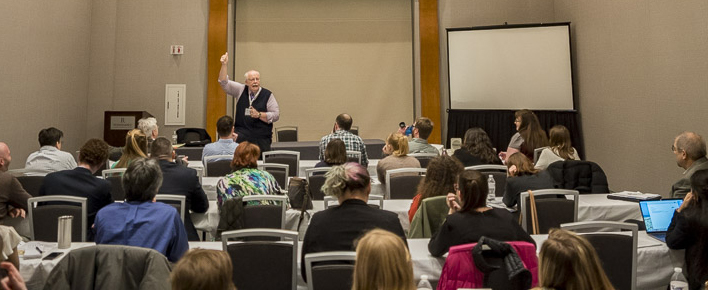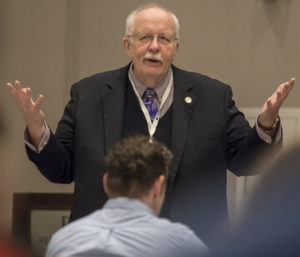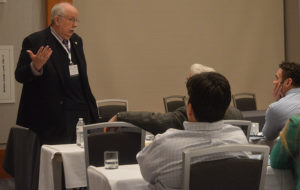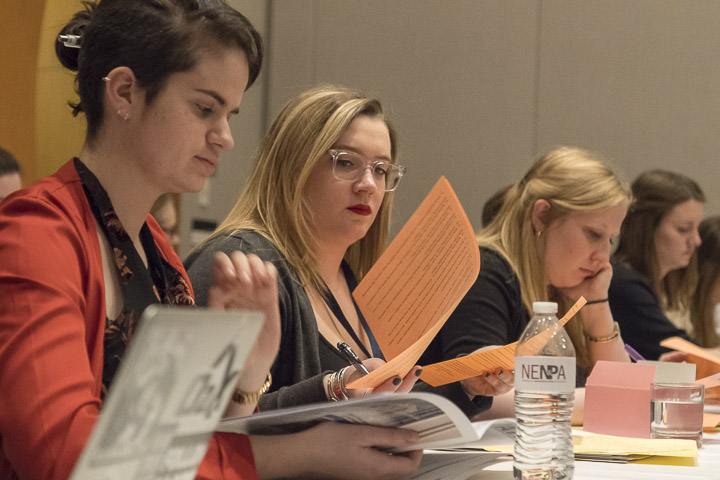
Mike Donoghue makes a point to his virtual full house of an audience at his session on obtaining public records.
Public records quest calls for
polite, firm, persistent touch
By Nadine El-Bawab
Bulletin Correspondent
Often, government offices are unwilling to give out records to reporters even when that information is supposed to be public, and as Mike Donoghue put it: “Records are really your best source of information.”
In a session titled “The Ask: Getting public records you need” at the New England Newspaper and Press Association’s recent winter convention, Donoghue shared 25 tips on how to obtain the information you need from those reluctant offices.
Donoghue was a longtime news and sports writer at The Burlington (Vt.) Free Press and has been an adjunct professor of journalism and mass communications since 1985 at St. Michael’s College in Colchester, Vt. He is first vice president of the New England First Amendment Coalition’s board of directors.

‘Just by reading the law and having it fresh in your mind you just might get onto something.’
— Mike Donoghue,
Retired news and sports reporter,
Burlington Free Press
At the top of the list of tips, Donoghue advised journalists to “read your state open government laws (public records/open meeting) word for word at least once a year. (Make it a birthday present to yourself, or do it each New Year’s Day! Look at the federal Freedom of Information Act (FOIA) too.”
Donoghue said that, even though that might seem tedious, it has been helpful in reminding him what documents are public and are relevant to the stories on which he is working, and it tells him what documents he should be requesting.
“Just by reading the law and having it fresh in your mind you just might get onto something,” Donoghue said.
Changes to those laws could also affect what documents are available to you, so make sure your information is constantly up to date, Donoghue said.
And always remember to be puzzled when someone declines your requests and “don’t be afraid to call them out on redactions or things that don’t make sense,” he said.
An underlying theme of many of his tips was the importance of being patient and being kind but assertive in dealing with the gatekeepers of information, especially those with whom you are frequently in contact.

‘Never accept “no” for an answer. Everybody has a boss (and those people each have a boss).’
— Mike Donoghue
Another of Donoghue’s tips was to think out of the box when choosing to whom to send public records requests, especially when you are experiencing pushback from those you have contacted.
“Never accept ‘no’ for an answer. Everybody has a boss (and those people each have a boss),” he advised.
Finally, he said, it is important to make sure to “say ‘Thank you.’ And say it often. (Today, tomorrow and after the story appears. Officials love to hear it.)”
About 45 people attended the session, held Saturday, Feb. 24, in the Renaissance Boston Waterfront Hotel in South Boston.

Audience members pass along an examine a handout at the session on public records.
